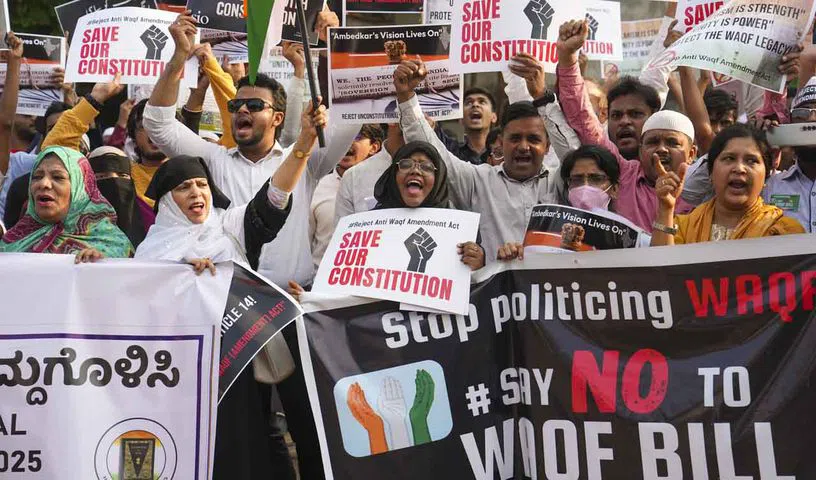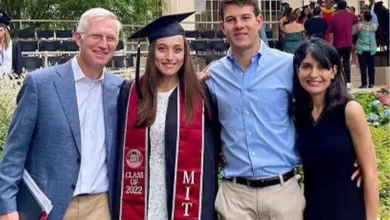
The Waqf (Amendment) Bill, 2025, violates the promise of equality, not just by treating equals unequally, but by doing so based on entrenched religious stereotypes
By Talha Abdul Rahman
The Waqf (Amendment) Bill, 2025, passed in the guise of efficiency and modernisation, in reality, reflects a disturbing shift in state policy — one that subtly displaces Muslims from the management of their own religious endowments and replaces constitutional fraternity with structural mistrust. Two provisions stand out in this regard: the dilution of Muslim exclusivity in the Waqf Council and State Boards, and the removal of the “finality clause” from the Waqf survey, effectively burdening the courts — and allowing unending challenges.
These amendments, when viewed through the lens of India’s constitutional values and the anti-subordination principle, reveal a deeper constitutional infirmity. They are not merely administrative adjustments but forms of legal subordination that target a religious minority under the veneer of neutrality. This is precisely the form of breach of constitutional morality that Dr Ambedkar had cautioned us against.
Violates Article 26=
The amendment’s proposal to include “non-Muslims” into Waqf Boards violates Article 26 of the Constitution, which guarantees every religious denomination the right to manage its affairs in matters of religion. The inclusion of women is a camouflage and semantics.
Religious endowments, especially Waqf, are not generic and ordinary public trusts; they are denominational institutions governed by personal laws, customs and faith-based jurisprudence. The Supreme Court has recognised that state interference in the administration of religious institutions must not destroy their essential denominational character —and must not take away the institutional autonomy of the community concerned.
Exclusive Rights
The Waqf structure in India, based on Islamic charitable jurisprudence, is a distinct religious institution and deserves the same constitutional protection as temples or gurudwaras, which have full right to manage their affairs within the framework of the law.
Contrast this with the Sikh Gurdwaras Act, 1925, or the Hindu Religious and Charitable Endowments Acts of various States. These statutes preserve the exclusive rights of Sikhs and Hindus, respectively, in managing their institutions. There is no parallel provision mandating the inclusion of persons from outside those faiths into the decision-making bodies of temples or gurudwaras. The selective imposition of pluralism only upon Muslim institutions indicates a discriminatory standard. If the argument is to secularise the Waqf Council and the Waqf Board, the same should stand true for temple management boards as well as gurudwaras.
Unfortunately, the entire proposed amendment is a legislative expression of what at best qualified as propaganda propelled on social media, especially on RWA WhatsApp groups that Waqf Boards are staking claims over whole villages or government lands, or worse, that Waqf Boards comprising Muslims are incapable of deciding that a property is not a Waqf property.
The two moves — including ‘outsiders’ in Waqf administration and removing the finality clause — reduce Muslims from constitutional subjects to administrative suspects
The so-called call for transparency and good governance comes after the government has calculatedly destroyed the institutions. For instance, in Delhi, the tenure of the members of the Waqf Board lapsed in August 2023, and no board is functional. Thereafter, in the absence of a meaningful oversight, the Delhi Development Authority, using the platform of the Religious Committee, has demolished a 13th-century Waqf Mosque in the Mehrauli area, which was even surveyed and noted by the Archaeological Survey of India. Two other mosques were demolished in the same way.
Unfortunately, even the Tribunal in Delhi is dysfunctional for lack of quorum because its members have not been appointed by the Lieutenant Governor. The institution has not merely been restructured — it has been hollowed out from within.
Finality Clause
In various provisions of the Waqf Act, finality was given to the decision of the Tribunal. In fact, in all legislations that create a Tribunal, such finality clauses are treated as boilerplate. The idea is that what is decided by the Tribunal should not be questioned again in civil courts. Removal of such a clause, as proposed by the amendment, will result in opening the floodgates for repeated challenges, re-litigation and bureaucratic scrutiny of settled Waqf properties. It is also relevant that a government officer, ie, a district magistrate, has been made in charge of the survey to determine the claim against the government. The amendment breaches a host of the most basic principles of law.
This legal reform relating to finality and provision of ‘appeal’, appears technical but is symbolically loaded — it implies that Muslim claims over religious property are inherently suspect even when decided by the Tribunal. Note that the Tribunal may even reject the claim of the Waqf Board. The presumption of mala fides or irregularity in Waqf declarations, unlike the legal deference accorded to other religious communities, institutionalises a regime of suspicion. There is no data, no study or scientific collection that precedes this — and no justification for such a provision.
Further, by providing an appellate remedy to the High Court, the amendment seeks to add another layer of litigation, increasing the burden of the courts — defeating the purpose of tribunalisation. The provision has not been thought through, and whoever came up with this lacks even the most basic understanding of judicial review and administrative law in India.
Doctrine of Arbitrariness
The amendment is hit by the doctrine of arbitrariness and the principle against subordination of fellow citizens. Notably, subordination is not merely about exclusion — it is about legal structures that construct certain communities as permanently untrustworthy or undeserving of equal legal respect. This is exactly how the amendment proceeds. One cannot ignore that it may even be comparable to denotified tribes, who continue to prove their innocence much after being denotified.
The removal of finality as well as the inclusion of other communities in the management of the Waqf Boards, in this case, is not innocuous neutral governance — it creates a presumption of fraud or illegitimacy in Muslim endowment practices where such a presumption does not apply to Hindu Mathas or Sikh gurdwaras — or any other group. Muslims, whether watching a cricket match, performing official duties, or on the border fighting wars, and now when managing their properties, are suspect in their motherland.
The Amendment violates the promise of equality, not just by treating equals unequally, but by doing so based on entrenched religious stereotypes. The anti-subordination lens, when applied to the amendment, would reveal that legal neutrality can often mask structural inequalities that reinforce historical power dynamics.
By including ‘outsiders’ in the Waqf administration, the law dismantles self-governance, and by removing the finality clause, it invites perpetual executive oversight — two moves that together reduce Muslims from constitutional subjects to administrative suspects. The Waqf amendment, so viewed, becomes a tool of disempowerment cloaked in reform. Far from offering “UMEED” of any kind, it is an exercise in constitutional fraud and breach of constitutional morality.







